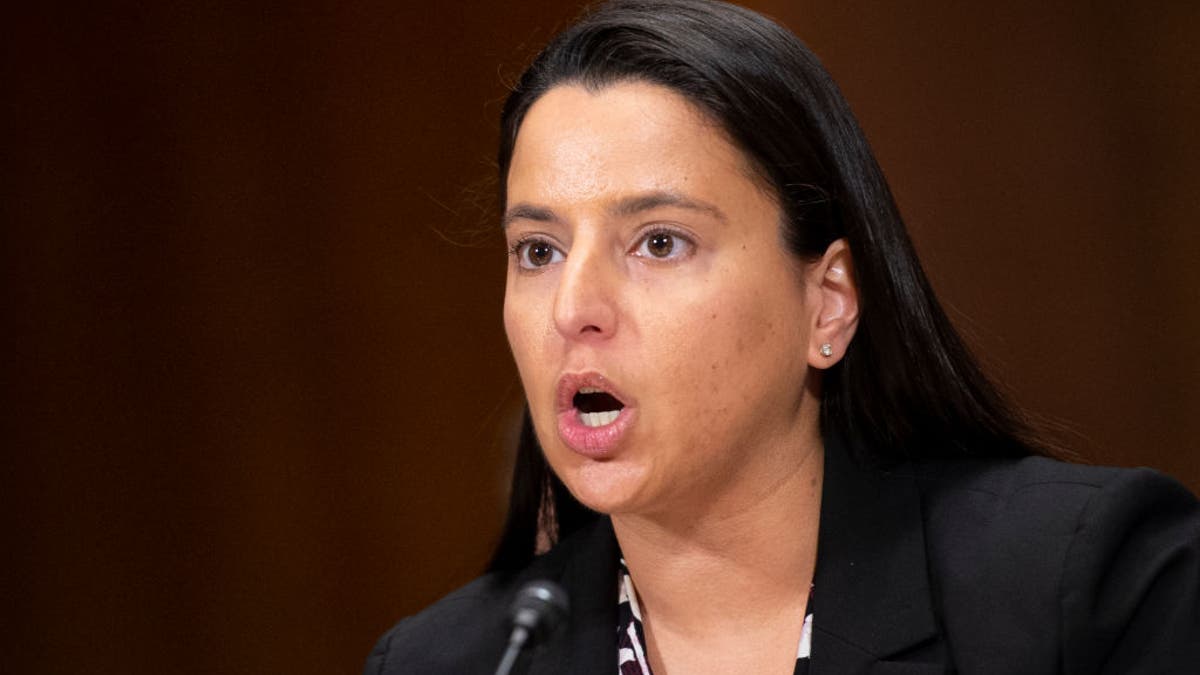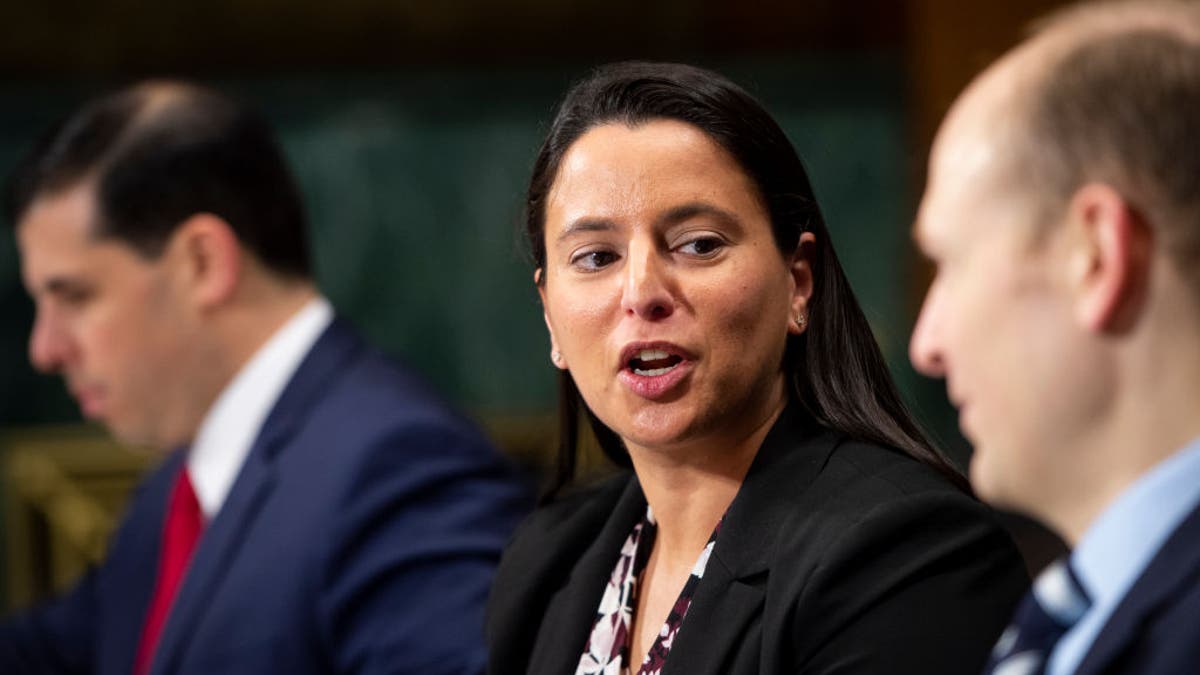Fox News Flash top headlines for July 17
Fox News Flash top headlines are here. Check out what's clicking on Foxnews.com.
To protect the civil rights of all Americans, the U.S. Senate should oppose the nomination of judicial nominee Loren L. AliKhan to the U.S. District Court for the District of Columbia. Her record of repeatedly making extreme arguments and losing in court raises doubts about her qualifications, fairness, and legal judgment.
In private practice and as Solicitor General of D.C., she attacked people of faith, including Sikhs. She opposed the right to assemble for worship, the right of religious organizations to choose teachers of faith and the right of faith-based groups to choose how to form without government interference. Her attacks on the First Amendment to the Constitution are far outside the mainstream and have been rejected by many courts.
Indeed, AliKhan’s arguments were too extreme for all 9 members of the U.S. Supreme Court. In the 2012 case Hosanna Tabor v. EEOC, AliKhan’s extreme legal theory, if adopted, would have essentially eviscerated the first freedom of the Constitution. Her brief took aim at the ministerial exception, which is a religious employer’s First Amendment right to make decisions about hiring and firing ministers without government interference.
FEDERAL COURT DELIVERS MAJOR BLOW TO BIDEN'S RADICAL EQUITY AGENDA
All nine justices on the Supreme Court—which then included Justices Ruth Bader Ginsburg and Sonia Sotomayor as well as Justices Scalia and Thomas—rejected AliKhan’s theories. The sharply worded Supreme Court unanimous opinion labeled her arguments "untenable" and "hard to square with the text of the First Amendment, which gives special solicitude to the rights of religious organizations."

FILE -- Loren AliKhan, Deputy Solicitor General for the District of Columbia, speaks during a Senate Judiciary Committee hearing on Universal Injunction Challenges in Washington on Tuesday, Feb. 25, 2020. (Photo by Caroline Brehman/CQ-Roll Call, Inc via Getty Images)
The Supreme Court was not the only court to reject AliKhan’s First Amendment theories. She proved too extreme for the District Court of District of Columbia, the very court to which AliKhan is currently nominated. In 2020, D.C. barred gatherings of people of faith from assembling for worship but permitted massive gatherings for political protests. In Capitol Hill Baptist Church v. Bowser, AliKhan tried—and failed—to justify this differential treatment based on religion. As a consequence of her loss in court, D.C. taxpayers were ordered to reimburse the church $220,000 in legal fees.
JUSTICE KETANJI BROWN JACKSON'S DISSENTS ARE BETTER 'CLICKBAIT' THAN LEGAL SCHOLARSHIP, EXPERTS SAY
In the Capitol Hill Baptist case, AliKhan and the D.C. legal team proffered a "doctor’s" affidavit to justify COVID-19 restrictions. But as it turns out, this doctor was a political scientist, and as the court held "falls well short" of the required legal standard for expert witnesses. When Senator Hawley questioned AliKhan about this case at her nominations hearing, she offered the poor excuse that the case was "fast-moving."
Unlike her description of how she handled a First Amendment case of utmost importance, AliKhan’s confirmation should not be ‘fast moving.’
CLICK HERE TO GET THE OPINION NEWSLETTER
AliKhan’s views were also too extreme again for the D.C. Court of Appeals when she opposed the religious liberty rights of Sikhs to build a temple in the nation’s capital. The Sikh temple, National Gurdwara, has struggled over the years to have funding to stay in operation, and closed in 2012.
Sikhs who worshipped at the Gurdwara also were involved in Jawant Sawhney Irrevocable Trust, a religious organization that funds an international charity serving orphans, the homeless, and people with disabilities outside D.C. In 2013, the trust filed a request for a property tax exemption to fund the reopening and operate the temple. However, AliKhan opposed the trust’s religious exemption in Jaswant Sawhney Irrevocable Trust, Inc. v. District of Columbia.

FILE – Loren AliKhan, Deputy Solicitor General for the District of Columbia, center, speaks with Samuel L. Bray, a professor at Notre Dame Law School, before the start of a Senate Judiciary Committee hearing on Universal Injunction Challenges in Washington on Tuesday, Feb. 25, 2020. (Photo by Caroline Brehman/CQ-Roll Call, Inc via Getty Images)
AliKhan’s narrow views on religious liberty would have segregated First Amendment protections to the walls of a church or a temple, and as the court said, "would also run counter to the charitable practices—and in many cases, teachings—of diverse religious traditions." Furthermore, the court also rejected her shoddy legal analysis in another sharply worded opinion, noting her arguments were "without a basis in text or precedent" and she made a "quantum logical leap." Her narrow views and poor legal analysis threatened the religious liberty rights of a minority faith, and with it, is an attack on diversity in our country.
CLICK HERE TO GET THE FOX NEWS APP
The U.S. Supreme Court and other federal judges voted against AliKhan’s extreme legal theories about the First Amendment. First Liberty Institute, along with a coalition of diverse organizations, has submitted a letter to the Senate Judiciary Committee opposing her nomination.
The U.S. Senate should vote against AliKhan’s extreme legal views and stop her from becoming a district judge.

